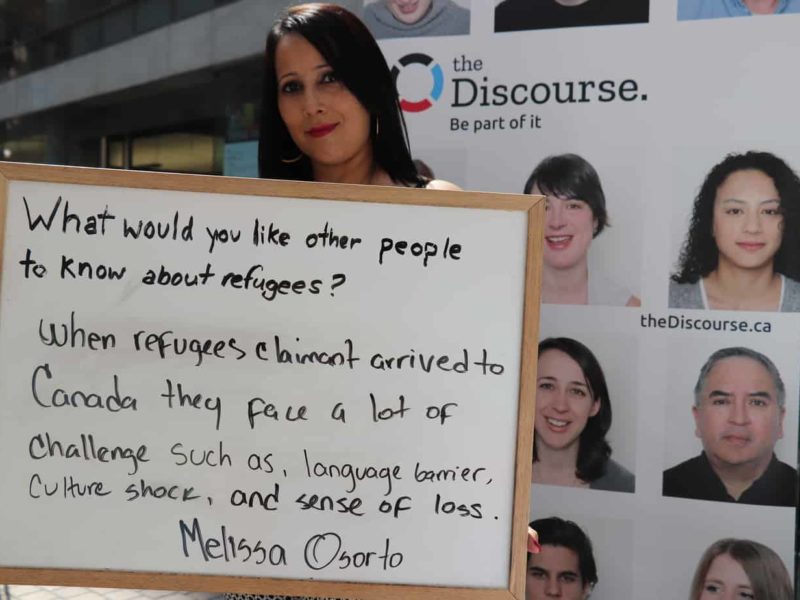
What do the conflicts over pipeline projects, rising housing costs, minimum-wage hikes, and the damage caused by wildfires all have in common?
They are all sustainable-development issues.
“Sustainability is not just about environment; it’s about economic issues. It’s about social issues. And they’re all interconnected,” says Zahra Sethna, director of communications at the International Institute for Sustainable Development, a think tank.
As The Discourse’s sustainability reporter, I’ve been speaking to dozens of people like Sethna about what sustainable development is and how the media can cover it better. They’ve told me that journalists could do a better job of examining these interconnections — as well as potential solutions to the sustainable-development challenges that Canada faces.
Sethna points to a study by the institute that found that pollution costs Canadian families, businesses and governments a minimum of $10 billion a year as an example of the types of interconnections the media could cover.
“Pollution harms human health, damages forests and crops and degrades the quality of land and water,” the study reads. “The result is higher costs for many things: medical care, raw materials, food and public services” — but Canadians “are not adequately informed about them.”
“Sustainability is seen as often not a hard-edge issue. It’s not a hard-news issue,” says John McArthur, a Canadian economist at the Brookings Institution, a think tank headquartered in Washington, D.C. “But I don’t think that’s quite right, because if we lose our fisheries, that’s a hard issue for much of Canada. If we suffer from catastrophic climate change, that’s a hard issue for us. If there’s floods in Calgary, that’s a hard issue for the people of Calgary. I think we need to understand the connections between these issues.”
So how can we talk about the challenges Canada faces differently? Can covering them through the lens of sustainability enhance the public discourse? These types of questions are part of the reason why The Discourse is hosting a journalism workshop in Toronto this week on the media’s coverage of sustainability.
The workshop will bring together journalists from different media outlets with a range of experts to discuss the media’s coverage of sustainability and how we can improve it. We’ll explore what great sustainability journalism could look like, the barriers to producing such journalism in Canada, and ways we can work together to improve coverage.
One way journalists could contribute is with deeper coverage of the United Nations’ Sustainable Development Goals, says McArthur. The SDGs, which the UN laid out in 2015, are 17 goals for signatory countries to accomplish by 2030. They include ending poverty, achieving gender equality, and promoting sustained, inclusive, and sustainable economic growth. They basically comprise a giant to-do list for making the world a better place.
The goals were set within a week of the foreign-policy debate during the 2015 federal-election campaign, but they received little coverage, McArthur explains: “The Canadian media talked a little bit about the fact that all these world leaders and the Pope and Malala [Yousafzai] and Shakira were at the UN, but they didn’t say what it was for.”
Although the Canadian government has pledged to work towards the goals — some of which involve targets for 2020 — one survey found that only 11 per cent of Canadians know what they are. That’s why many experts I spoke to said that the media has a role to play in informing Canadians of the goals.
“That’s fundamental,” says Simron Singh, associate dean of graduate studies at the Faculty of Environment at the University of Waterloo, who adds that it will be difficult for Canada to make progress on the SDGs if more Canadians don’t know about them.
Despite being one of the most prosperous countries in the world, Canada is not on track to achieve these goals. In fact, we need a “breakthrough,” according to research by McArthur and Krista Rasmussen, also of the Brookings Institution. They’ve found that Canada is moving backwards on issues such as food security, gender equality, and quality of education.
The media can help by covering solutions and helping generate public debate about how to solve these problems, as well as by holding elected officials accountable, according to McArthur. Sethna also says covering solutions is key.
“It’s also really important to focus on solutions and practical ways that everybody can participate or things that people can do,” she says. “I think very often when we talk about these issues we focus on the enormity of the challenges, but it’s important to take it from a solutions perspective.” [end]
This story was co-published by The Discourse and TVO.



